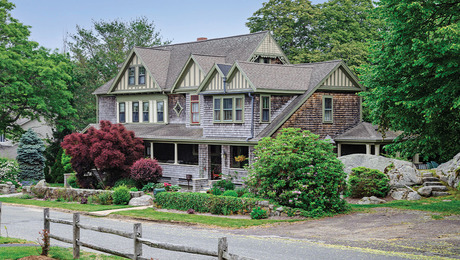Greetings,
I thought to submit my question to the impressive collective wisdom represented here.
I live in Spokane, Washington and am considering recycled clay bricks as patio pavers. For those not familiar with the climate of Spokane, we can have winters on par, I’m guessing, with those found in, say, Boston, Minneapolis and other northern cities where the snow can stick around for weeks, if not months, and it can get below zero.
Would someone be inviting disaster by bedding clay bricks in sand for an outside patio? To my way of thinking, I would wonder if a person would be setting themselves up to have lots of cracked bricks due to the freeze-thaw cycle.
Could some kind of sealer be counted upon to protect a clay brick from taking up moisture? Any other details to consider?
Thanks in advance,
Rick















Replies
There are 2 basic kinds of modern clay bricks: paver bricks which are solid and baked to be harder than regular bricks and then there are "wall brick" which generally have holes in them which helps the mortar hold them together in a wall or other masonry structure. You want the first type.
And yes, dry layed paver bricks can give very satisfactory service if they are installed on the proper substrate and if they are installed with a proper edge treatment.
rick,
Well if they don't work my driveway is all wrong.. If you go into the archieves and punch in 85891.1 there should be shots of my driveway.
These are paving bricks laid around 1903 and about 20 years ago I got them for two cases of beer.. thus they have lasted a little over 100 years.. since much of that time was on one of the main arteries into Minneapolis with large 18 wheelers pounding over them. currantly they endure 30,000 pound forklifts lifting massive heavy timbers in place for me.. the heaviest piece of machinery they've had was a 30 ton crane. (the real crane not those light duty truck mounted cranes)
I suspect that brick will hold up to patio furniture,but how much do you weigh ;-)
Since you're on the West Coast, I would advise against using ordinary bricks as pavers.
I have found brick out west to most often be a soft terra cotta, and not the dard fired brick I was accustomed to back east. A soft brick will quickly cup and erode under foot traffic.
I don't want to pretend that I know what I am talking about here so I will just tell you what I have seen and you can take it for what it is worth. I live in a northern climate with lots of freezing and thawing. I have seen many instances were people have used recycled brick and what usually happens is the brick starts cracking and breaking apart due to the freezing and thawing. I found this to be the case with both solid and hollow bricks.
In the long run, I believe you would be better off with a landscape or driveway paver.
Dave
Get a brick like what you intend to use. Soak it in water over night. Put it in a big ziplock bag, and put it the freezer. Leave it for the day. When you get home, take it out and put it back in the bucket of water, and thaw/soak it overnight. Repeat the soak, freeze, thaw for about two weeks.
If it starts falling apart it is too porous to survive as a patio paver in a climate where it freezes.
Basically what degrades brick pavers that are too "soft"/porous, is they have lots of tiny pores that absorb water. When that water freezes and expands it breaks apart the brick. Every time it goes through a freeze thaw cycle, it gets a little "softer" or porous, and can then absorb more water, which then expands more when it freezes. After enough cycles there isn't much strength left in the brick.